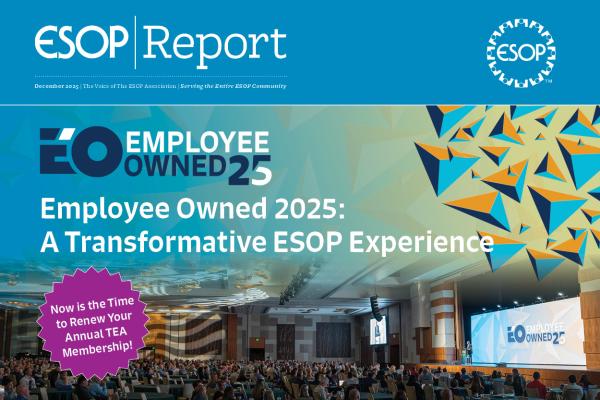Washington, DC, March 14, 2022 - The ESOP Association and American Benefits Council jointly filed an amicus brief in the U.S. Court of Appeals for the Second Circuit in support of the belief that ESOP plans need, and have, the ability to require individual arbitration to resolve individual participant disputes. A previous District Court ruling has the potential to eliminate individual arbitration, which would dramatically increase the litigation costs for companies with employee defined-contribution retirement plans, such as ESOPs and 401(k)s.
The amicus brief was filed in the case of Cedeno v. Argent Trust Company, et al. , United States Court of Appeals for the Second Circuit, which is an appeal of a decision from the Southern District of New York.
The brief argues several reasons a lower court ruling was incorrect and, if upheld, would effectively eliminate individualized arbitration of ERISA fiduciary-breach claims and may cause courts to question whether class actions are even required for such lawsuits. When passing the Employee Retirement Income Security Act of 1974 (“ERISA”), Congress feared that the high cost of litigation would discourage employers from offering voluntary benefit programs like ESOPs and 401(k)s, and the lower court’s decision would help realize those fears.
James Bonham, President and CEO of The ESOP Association, said “This case is of direct and immediate importance to every ESOP in the nation and is quite possibly on a pathway to the US Supreme Court. It is the role of The ESOP Association to weigh in on behalf of our membership to protect their interests – and that is exactly what we have done.”
Arbitration procedures are generally easier to navigate than court procedures, and both claimant and company can benefit by avoiding the high costs of attorneys. Arbitration also has due process, oversight, and can be overruled by courts if they are deemed unfair.
The amicus brief can be found in the resources to the right.
###
What is an Amicus Brief?
Per the Harvard Civil Rights-Civil Liberties Law Review “An amicus curiae (literally, "friend of the court") often referred to as amicus brief is defined as the legal brief where someone who is not a party to a case assists a court by offering information, expertise, or insight that has a bearing on the issues in the case. The decision on whether to consider an amicus brief lies within the discretion of the court. The scope of amicus curiae is generally found in the cases where broad public interests are involved and concerns regarding civil rights are in question.”







